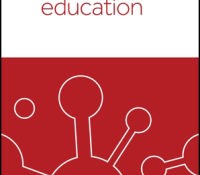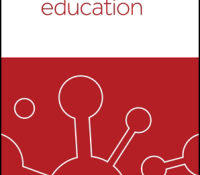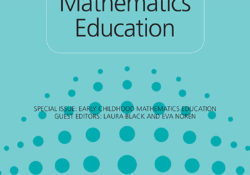tandfonline.com har udgivet en rapport under søgningen “Teacher Education Mathematics”: ABSTRACT ABSTRACT The increasing global warming and the loss of biodiversity should concern us all. Some feel that outdoor activities, which take place in natural surroundings, should have a special obligation to change. In this article I present an example of what an outdoor life practice that responds to the ecological crisis could look like. I use the simple Norwegian outdoor life called friluftsliv, and the deep ecological version suggested by philosopher and climber Arne Næss (1912–2009) as an example and case. Naessian friluftsliv is interesting and relevant in three ways. First, Naess gave a philosophical basis for friluftsliv, building on deep ecology and Spinozism. Second, he presented content, norms and guidelines for a deep ecological friluftsliv. And third, he… Continue Reading →
Like this:
Like Loading...
tandfonline.com har udgivet en rapport under søgningen “Teacher Education Mathematics”: Abstract Formulae display:?Mathematical formulae have been encoded as MathML and are displayed in this HTML version using MathJax in order to improve their display. Uncheck the box to turn MathJax off. This feature requires Javascript. Click on a formula to zoom. Abstract This study is the first to investigate and validate the psychometric properties of an Indonesian translation of the Student Performance Opportunity of Competence Development (SPOCD) questionnaire that covers five key competencies related to the mathematics learning process, namely: (1) thinking; (2) relating to others; (3) using language, symbols and text; (4) managing self, and; (5) participating and contributing. The SPOCD questionnaire comprises 30 items, with a 5-point Likert scale. A total of 1413 Indonesian high-school students (46.4% male,… Continue Reading →
Like this:
Like Loading...
tandfonline.com har udgivet en rapport under søgningen “Teacher Education Mathematics”: Abstract Abstract This study aimed to examine the psychometric characteristics of the Arabic version of the Teacher Efficacy for Inclusive Practices (TEIP) scale. Data were collected from 432 participants in Saudi Arabia—185 in-service and 247 pre-service teachers. A statistical analysis was conducted using the following methods: Confirmatory Factor Analysis (CFA), Exploratory Factor Analysis (EFA), misfit analysis via Rasch modelling, and reliability Cronbach’s alpha coefficients. Good internal consistency coefficients were obtained for the TEIP scale and each of its three subscales (>.8). Acceptable fit indices were obtained from the confirmatory factor analysis (CFA) for a scale with 18 items in three subscales: inclusive instructions, collaboration, and managing behaviour. In conclusion, the Arabic version of the TEIP scale is valid with Arabic… Continue Reading →
Like this:
Like Loading...
eric.ed.gov har udgivet: This study represents the implementation of an English version of the Mathematics Teaching Anxiety Scale (MTAS), originally published in Turkey (Sari, 2014). One hundred and twenty-seven primary school teachers from across the U.K. completed the survey, including 74 qualified teachers and 53 trainees. Following item-reduction and factor analysis, the 19-item MTAS was found to have excellent internal consistency ([alpha] = 0.94) and has a two-factor structure. Factor one, labelled Self-Directed Mathematics Teaching Anxiety, includes 12 items pertaining to a teacher’s own teaching practice and perceived ability, whereas factor two, labelled Pupil/Student-Directed Mathematics Teaching Anxiety, includes 7 items pertaining to anxiety concerning pupils/students failing assessments or not reaching curriculum/school targets. Pre-service teachers, compared to in-service teachers, self-reported significantly higher overall maths teaching anxiety. Among in-service teachers, there was… Continue Reading →
Like this:
Like Loading...
eric.ed.gov har udgivet: In this technical report, we describe the results of a study of mathematics items written to align with the Common Core State Standards (CCSS) in grades 6-8. In each grade, CCSS items were organized into forms, and the reliability of these forms was evaluated along with an experimental form including items aligned with the National Council of Teachers of Mathematics (NCTM) Focal Point Standards. The purpose of the experimental measure was to evaluate how previously existing math items functioned empirically relative to the CCSS items. All included NCTM items were previously rated as linked with the CCSS. Analyses included Rasch modeling to explore the difficulty and functioning of both sets of items, classical reliability statistics (Cronbach’s alpha, testretest, and alternate form reliability) and two sets of Generalizability… Continue Reading →
Like this:
Like Loading...
tandfonline.com har udgivet en rapport under søgningen “Teacher Education Mathematics”: ABSTRACT ABSTRACT Play-based preschool pedagogy usually relies on informal teaching while policy trends and some research call for increased formalisation of the pedagogy. Using Bernstein’s concepts of classification and framing, this article characterises mechanisms that link evaluation of preschool to the push towards the formalisation of teaching in preschool. Moreover, it is suggested how preschool teaching of mathematics can be conceptualised in a way that widens the pedagogical responsibilities of the teachers to include a broader range of social activities than typically expected. These responsibilities concern how teachers are involved in pedagogical situations, if situations are planned and if the mathematics is a pedagogical goal in the situation or instrumental in some other activity. It is argued that a practice… Continue Reading →
Like this:
Like Loading...
tandfonline.com har udgivet en rapport under søgningen “Teacher Education Mathematics”: Abstract Formulae display:?Mathematical formulae have been encoded as MathML and are displayed in this HTML version using MathJax in order to improve their display. Uncheck the box to turn MathJax off. This feature requires Javascript. Click on a formula to zoom. Abstract A version control system records changes to a file or set of files over time so that changes can be tracked and specific versions of a file can be recalled later. As such, it is an essential element of a reproducible workflow that deserves due consideration among the learning objectives of statistics courses. This paper describes experiences and implementation decisions of four contributing faculty who are teaching different courses at a variety of institutions. Each of these faculty… Continue Reading →
Like this:
Like Loading...




